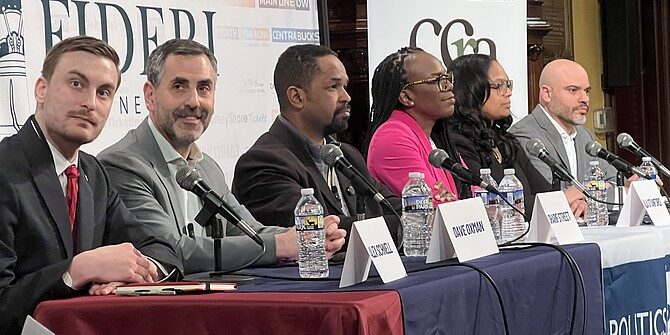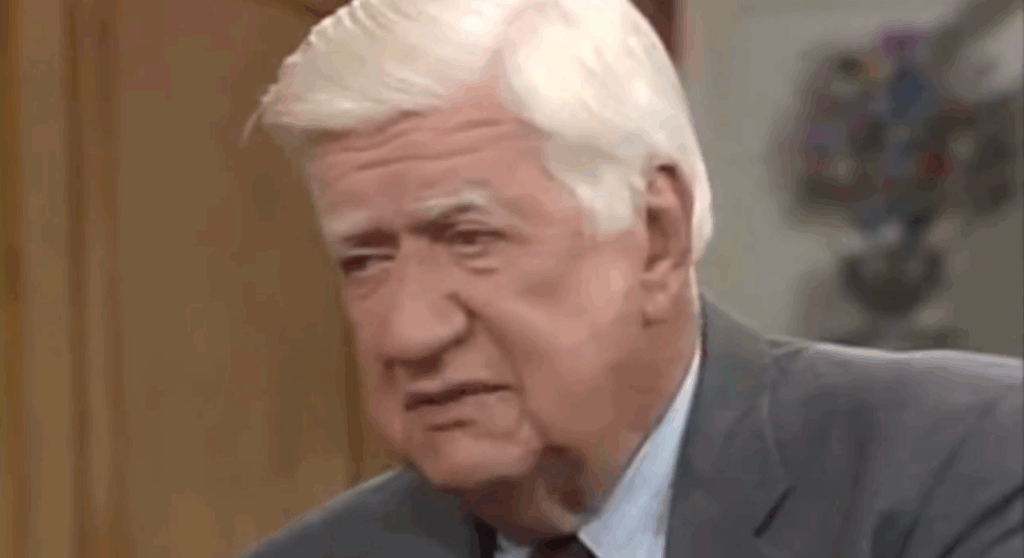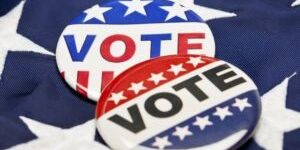Seth Higgins: No Labels may offer a third choice in 2024’s lackluster Biden-Trump rematch
It is all but assured America is heading for a presidential rematch this fall following Joe Biden’s and Donald Trump’s victories this Super Tuesday. Underneath their strong primary performances is a growing unease with a Biden/Trump rematch. Approximately 70 percent of potential voters have indicated to pollsters that they do not want a rerun of 2020. Despite their grip on the parties, voters have grown tired of Biden and Trump.
This exhaustion has created an unusually wide lane for potential third party candidates. Not since Ross Perot captured 19 percent of the national vote in the 1992 presidential election has so much political energy been directed away from the two major parties. Voters are sending messages that the Democratic and Republican parties are unable — or unwilling — to read.
No Labels is one group that received this message loud and clear. This political organization believes “leaders need to listen more to the majority of Americans and less to extremists on the far left and right.” Given their mission and Americans’ dissatisfaction with an elderly president and a twice-impeached former president that is facing nearly 100 felony counts, No Labels is quietly gaining ballot access in multiple states should a variable third-party candidate launch a presidential bid aimed at the weaknesses of the two main party’s candidates.
Few Americans have likely heard of No Labels, but they have been around for over a decade. Since then, they have encouraged Congress to form bipartisan consensus around issues that may inflame their respective political bases but are nonetheless popular policy positions among most Americans.
In 2024, No Labels is taking their mission to presidential politics. While No Labels remains largely unknown, Republican and Democratic political operatives have taken notice.
Both parties are trying to halt the No Labels effort to gain ballot access in as many states as possible. This prompted No Labels to file a complaint with the Department of Justice that alleges a “conspiracy” among organizations to frustrate its ballot access endeavors.
Their allegations are not without merit. Semafor reported on a recorded call between Democratic and anti-Trump Republicans bent on stopping No Labels. An individual on the call stated an aggressive opposition research campaign would be launched against those supporting No Labels.
No Labels telegraphs as little of their strategy as possible because of this environment. Despite this, a senior official with No Labels was willing to speak with me on background, which provided valuable insight into their recent activities and the way their organization sees the 2024 presidential election unfolding.
No Labels’ activities are limited by their 501(c)4 status. Unlike official campaigns, donors’ contributions to a 501(c)4 are not limited to $3,300 per election. However, they are unable to directly coordinate with any candidate’s campaign. This means No Labels is attempting to gain ballot access in as many states as possible before offering their ballot line to a candidate.
There are two reasons for this strategy.
First, No Labels is likely to have greater financial resources because contributions to their organization are not limited. This is vital since ballot access is expensive for non-incumbent major parties and third parties, which often can retain their ballot access easily once it is achieved in a given state. Second, once No Labels provides their ballot line to a candidate, they are unable to assist the candidate with ballot access efforts going forward.
This tricky balance has prompted No Labels to hold off as long as possible before turning its ticket over. One estimate shared with me has No Labels potentially providing its ticket to a third-party candidate in mid-April.
No Labels currently has ballot access in approximately twenty states and is gaining traction. For example, only approximately five more electors are needed for No Labels to gain ballot access in Pennsylvania. Electors in Pennsylvania must be made public by law, which explains why No Labels is reluctant to reveal its next moves given the backlash they are facing.
Their first major milestone is approaching.
Delegates will meet this Friday, March 8 to determine whether to offer their ballot to a candidate or not. Should No Labels decline to offer their ballot to a candidate, all ballot access efforts cease and No Labels’ 2024 presidential aspirations end. However, this is unlikely given the results this Tuesday.
But should No Labels’ delegates decide to offer ballot access, the official who spoke to me outlined what would happen next.
The next important milestone would be the No Labels convention, which allows No Labels to officially turn its ballot line over to a preferred candidate. No Labels scrapped its initial plan to hold a convention in Texas. The timing and method of the convention is not publicly available, and it appears details have not been finalized.
The official stated voters need the personification of a politician to get excited. Until a candidate takes over, No Labels expects limited interest from average voters.
Once a candidate takes over the ticket, the official pointed out that voters can change their minds quickly and rally behind an unexpected candidate. Kamala Harris’ doomed 2020 presidential campaign was offered as an example of a much-hyped candidate that was unexpectedly overtaken in the run up to the Iowa caucus by Pete Buttigieg, the little-known Mayor of South Bend, Indiana.
Another example is Ross Perot’s unlikely success in the 1992 presidential election. Perot was not a household name when he used his vast wealth to gain ballot access across the country. He grabbed issues that were ignored by the two major parties, such as skepticism about free trade and the federal debt. He advanced his message through novel communication tactics that grabbed America’s attention. While Perot was ultimately unsuccessful, his political movement spurred both major parties to reconsider their policy positions and their relationship with the electorate.
One criticism of No Labels is they may split the vote to such a degree that the winner of the 2024 presidential election may receive a thin plurality of the vote, which may signal a lack of confidence in the election’s outcome, regardless of party.
The official expressed little concern with this scenario by pointing again to the 1992 presidential election, where Bill Clinton won with only 43 percent of the national vote.
Currently, the 2024 presidential election is the fun-house mirror image of the 2020 election. In many ways, it is a repeat: two aged politicians with serious vulnerabilities ask their voters to turn out for them primarily as a vote against the other guy. Issues take a back seat to tribal politics.
No Labels may just smash the fun-house mirror and inject new life into an election few want. One major question remains: Americans may not want a Biden/Trump rematch, but do they want what No Labels plans to offer?
Seth Higgins, a native of Saint Marys, Pennsylvania, specializes in bringing conservative thought to local government. Seth is a former Tablet Magazine Fellow and a former Krauthammer Fellow with The Tikvah Fund.





Excuse me but did you say “a recorded call between Democratic and anti Trump Republicans”? That just means ALL DEMOCRATS!!!!! The left hates RFK Jr. and that’s WHY you think the No Labels group is gaining popularity? At least he has some very good ideas. “Ask not what your country can do for you…..”. By the way, did you forget that there is something really good that comes from St. Mary’s? And it isn’t your writing. As the illustrious James Carville once said….”it’s the economy ( not the No Labels ) stupid”. Straub’s beer is one thing and carbide is the other. You should have left St. Mary’s for some remote island where no one can get your opinions. You should get off the fence. The pickets are exploding thru your head.